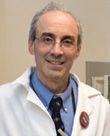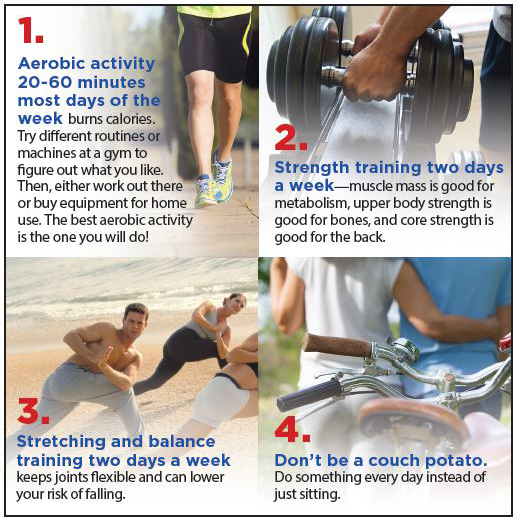Veterans' Healthy Living, Summer 2015
Heart Health: Not a One-and-Done Deal
Dr. John Michael Gaziano, a VA Boston Healthcare System cardiologist, is passionate about his work for good reason. "My grandfather died from a heart attack in his 40s," he says. "My father had the same disease in his 50s, but began exercising and managed his cholesterol and diet. He's still a practicing physician 20 years later."
 Dr. Gaziano admits that improved technology helps treat heart disease and that some situations require medications or procedures, but he believes patients hold the key to heart health—and good health in general.
Dr. Gaziano admits that improved technology helps treat heart disease and that some situations require medications or procedures, but he believes patients hold the key to heart health—and good health in general.
"Historically, doctors made the decisions," he says, "and patients just went along because their problem was life-threatening. But I encourage patients to take charge of managing their disease, and most appreciate the opportunity to do so."
First, Dr. Gaziano figures out what will motivate a patient to change.
"Some people want to see their kids graduate or meet their grandchildren." he says. Fear of having a heart attack or dying is also a good motivator, Sometimes, it's money, and people healthy enough to continue working earn much more than those drawing disability."Our greatest economic asset is our health."
After assessing a person's risk factor, Dr. Gaziano makes a list of risk factors that can be changed and then works with a patient to make a plan – a "prevention prescription" that might include medications for blood pressure and cholesterol and quitting smoking, For weight management he negotiates a realistic goal—but nothing too extreme— and he doesn't prescribe a diet that is difficult to adopt or to cook. "I give them the general rules of the road, but I want them to figure out what works for them."
He suggests a simple rule: balance calories in with calories out. "If you're active, your diet is more forgiving, but don't eat so little that you're miserable. Good nutrition is more about replacing the bad things with good things, like swapping whole milk for skim."
Dr. Gaziano also teaches patients about good and bad carbohydrates— too much sugar and starch produce excess insulin, which can lead to diabetes and heart disease. "Whole wheat bread is as bad as regular bread," he cautions, "and a spoonful of mashed potatoes is as bad as a spoonful of sugar. Good carbs are less processed."

He explains that our body processes foods such as green leafy vegetables, beans, and nuts differently. "We break those cells apart more slowly and burn sugar as it comes in. That smaller sugar load goes to your muscles instead of your fat tissues and liver." He also says to avoid low fat diets but eat "good" fats like those in fish and nuts. He recommends a diet that is about 40% carbs, 30% fats and 30% proteins if you are working out and building muscle.
Dr. Gaziano prescribes exercise, too. "If you don't exercise at all, start by doing something five minutes a day, three days a week. Keep a calendar of your activities, and figure out what works and what doesn't. Also, make it enjoyable. Exercise with friends or while listening to your favorite music, and time goes by quickly. Eventually, you won't want to miss a workout."
He recommends four exercise components:

Dr. Gaziano has heard every excuse for why people don't exercise. "If your knees hurt," he says, "it may be osteoarthritis but not exercising is the wrong answer, so start with low impact exercise and as you strengthen the muscles and tendons supporting the joint the symptoms may improve." No time? "Exercise actually gives you more time," he continues. "When I run every morning, I get more out of six hours' sleep than I do out of eight. Plus I have more energy and am more productive during the day." After several months, Dr. Gaziano reassesses patients. "We see if we were successful or fell short, and we set new goals. But patients ultimately manage their own health, and it isn't a one-and-done deal. It's about adopting a permanently healthy lifestyle."

















